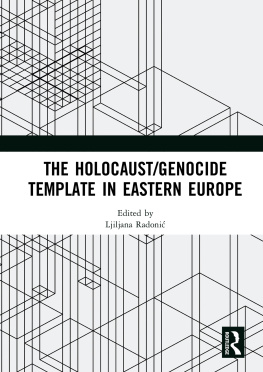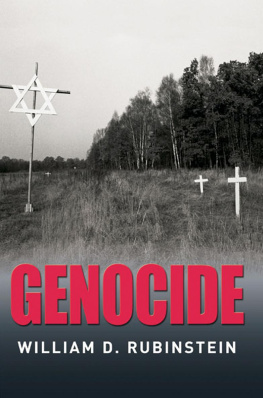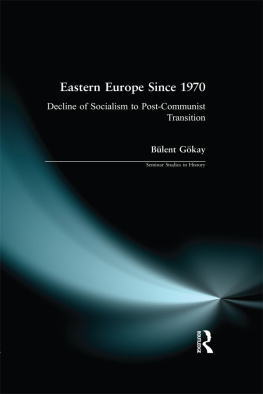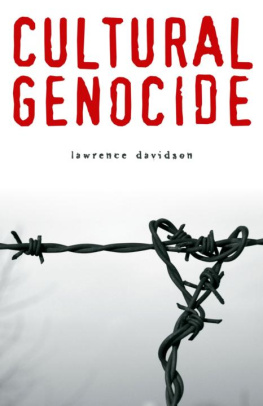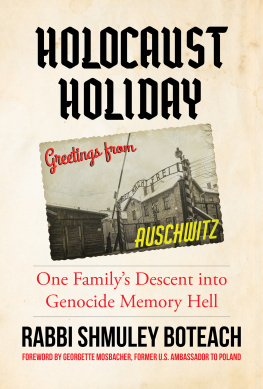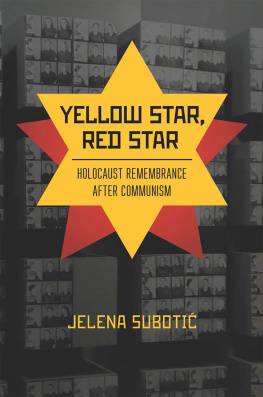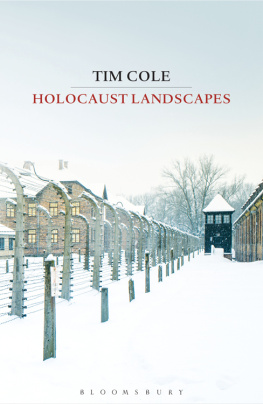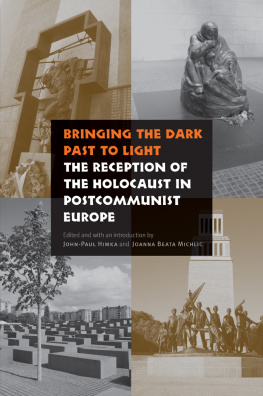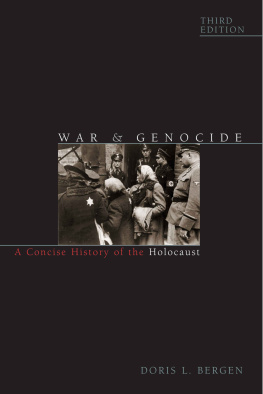The Holocaust/Genocide Template in Eastern Europe
The Holocaust/Genocide Template in Eastern Europe discusses the memory wars in the course of the post-Communist re-narration of history since 1989 and the current authoritarian backlash.
The book focuses specifically on how mnemonic warriors employ the Holocaust template and the concept of genocide in tendentious ways to justify radical policies and externalize the culpability for their international isolation and worsening social and economic circumstances domestically. The chapters analyze three dimensions: 1) the competing narratives of the universalization of the Holocaust as the negative icon of our era, on the one hand, and the double genocide paradigm, on the other, which focuses on our own national suffering under allegedly equally evil Nazism and Communism; 2) the juxtaposition of post-Communist Eastern Europe and Russia, reflected primarily in the struggle of the Baltic states and Ukraine to challenge Russian propaganda, a struggle that runs the risk of employing similarly distorting and propagandistic tropes; and 3) the post-Yugoslav rhetoric portraying ones own group as the new Jews and ones opponents in the wars of the 1990s as (akin to) Nazis.
Surveying major battle sites in this memory war: memorial museums, monuments, film and the war over definitions and terminology in relevant public discourse, The Holocaust/Genocide Template in Eastern Europe will be of great interest to scholars of genocide, the Holocaust, historical memory and revisionism, and Eastern European Politics.
This book was originally published as a special issue of the Journal of Genocide Research.
Ljiljana Radoni heads an ERC project on Globalized Memorial Museums. Exhibiting Atrocities in the Era of Claims for Moral Universals at the Austrian Academy of Sciences (Institute of Culture Studies and Theatre History). Her habilitation dealt with the World War II in Post-Communist Memorial Museums. She teaches at the Department of Political Science at the University of Vienna, Austria.
First published 2020
by Routledge
2 Park Square, Milton Park, Abingdon, Oxon, OX14 4RN
and by Routledge
52 Vanderbilt Avenue, New York, NY 10017
Routledge is an imprint of the Taylor & Francis Group, an informa business
Introduction, Chapters 16 2020 Taylor & Francis
Chapter 7 2018 Istvn Rv. Originally published as Open Access.
With the exception of Chapter 7, no part of this book may be reprinted or reproduced or utilised in any form or by any electronic, mechanical, or other means, now known or hereafter invented, including photocopying and recording, or in any information storage or retrieval system, without permission in writing from the publishers. For details on the rights for Chapter 7, please see the chapters Open Access footnote.
Trademark notice: Product or corporate names may be trademarks or registered trademarks, and are used only for identification and explanation without intent to infringe.
British Library Cataloguing in Publication Data
A catalogue record for this book is available from the British Library
ISBN 13: 978-0-367-40494-9
Typeset in Myriad Pro
by RefineCatch Limited, Bungay, Suffolk
Publishers Note
The publisher accepts responsibility for any inconsistencies that may have arisen during the conversion of this book from journal articles to book chapters, namely the inclusion of journal terminology.
Disclaimer
Every effort has been made to contact copyright holders for their permission to reprint material in this book. The publishers would be grateful to hear from any copyright holder who is not here acknowledged and will undertake to rectify any errors or omissions in future editions of this book.
The chapters in this book were originally published in the Journal of Genocide Research, volume 20, issue 4 (December 2018). When citing this material, please use the original page numbering for each article, as follows:
Introduction
The Holocaust/Genocide Template in Eastern Europe
Ljiljana Radoni
Journal of Genocide Research, volume 20, issue 4 (December 2018), pp. 483489
Chapter 1
Limits of Universalization: The European Memory Sites of Genocide
va Kovcs
Journal of Genocide Research, volume 20, issue 4 (December 2018), pp. 490509
Chapter 2
From Double Genocide to the New Jews: Holocaust, Genocide and Mass Violence in Post-Communist Memorial Museums
Ljiljana Radoni
Journal of Genocide Research, volume 20, issue 4 (December 2018), pp. 510529
Chapter 3
A Baltic Struggle for a European Memory: The Militant Mnemopolitics of The Soviet Story
Maria Mlksoo
Journal of Genocide Research, volume 20, issue 4 (December 2018), pp. 530544
Chapter 4
Genocide, Holodomor and Holocaust Discourse as Echo of Historical Injury and as Rhetorical Radicalization in the Russian-Ukrainian Conflict of 201318
Nicolas Dreyer
Journal of Genocide Research, volume 20, issue 4 (December 2018), pp. 545564
Chapter 5
Talking Past Each Other: Language and Post-World War II Killings in Slovenia
Gregor Kranjc
Journal of Genocide Research, volume 20, issue 4 (December 2018), pp. 565586
Chapter 6
Defending the Good Name of the Polish Nation: Politics of History as a Battlefield in Poland, 201518
Jrg Hackmann
Journal of Genocide Research, volume 20, issue 4 (December 2018), pp. 587606
Chapter 7
Liberty Square, Budapest: How Hungary Won the Second World War
Istvn Rv
Journal of Genocide Research, volume 20, issue 4 (December 2018), pp. 607623
For any permission-related enquiries please visit: http://www.tandfonline.com/page/help/permissions
Nicolas Dreyer is currently writing his habilitation thesis at the Institute of Slavic Studies at the Otto Friedrich University Bamberg, Germany, on cultural and intellectual-historical connections between Russian and German Jewry in the nineteenth century. He has published essays on Russian literature and on post-Soviet Holocaust remembrance.
Jrg Hackmann is Alfred Dblin Professor of East European History in the Department of History and International Relations at the University of Szczecin, Poland, where he teaches modern Central and East European history. He is also associated with the University of Greifswald, Germany. His research interests focus on memory cultures, transnational history, and on civil society in Eastern Europe.
va Kovcs is the Academic Programme Director of the Vienna Wiesenthal Institute for Holocaust Studies, Austria, and Research Chair at the Institute of Sociology of the Hungarian Academy of Sciences, Hungary. She founded the audio-visual archive Voices of the Twentieth Century in Budapest, Hungary. Her research fields are the history of the Holocaust in Eastern Europe, memory and remembrance, and Jewish identity in Hungary and Slovakia.
Gregor Kranjc is Associate Professor of Modern European History at Brock University, Canada. The geographic focus of his research lies in East Central Europe and the Balkans, with broader thematic interests in war and society, the intersection between historical trauma and memory, and the history of the regions ethnic and religious minorities.

